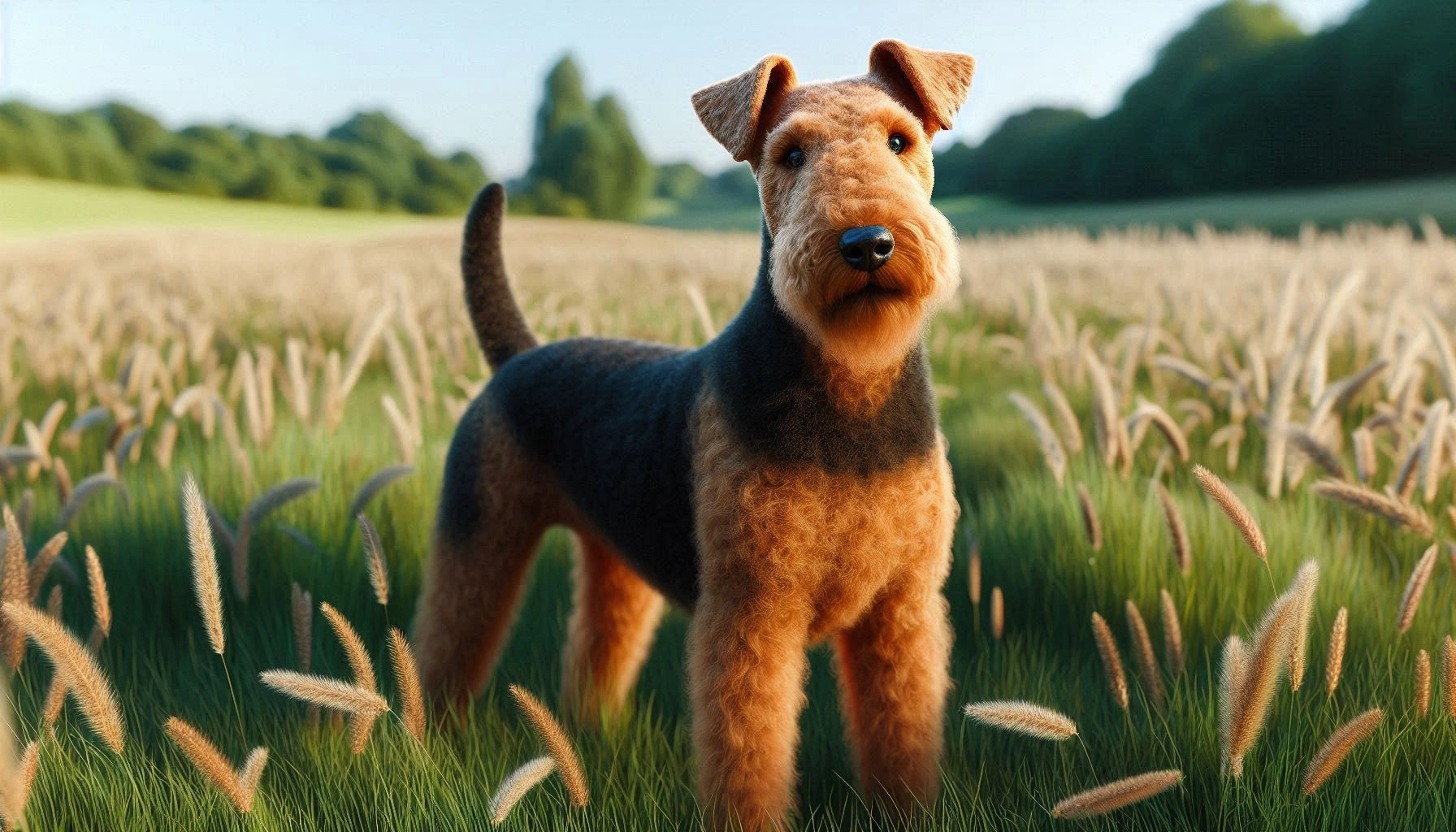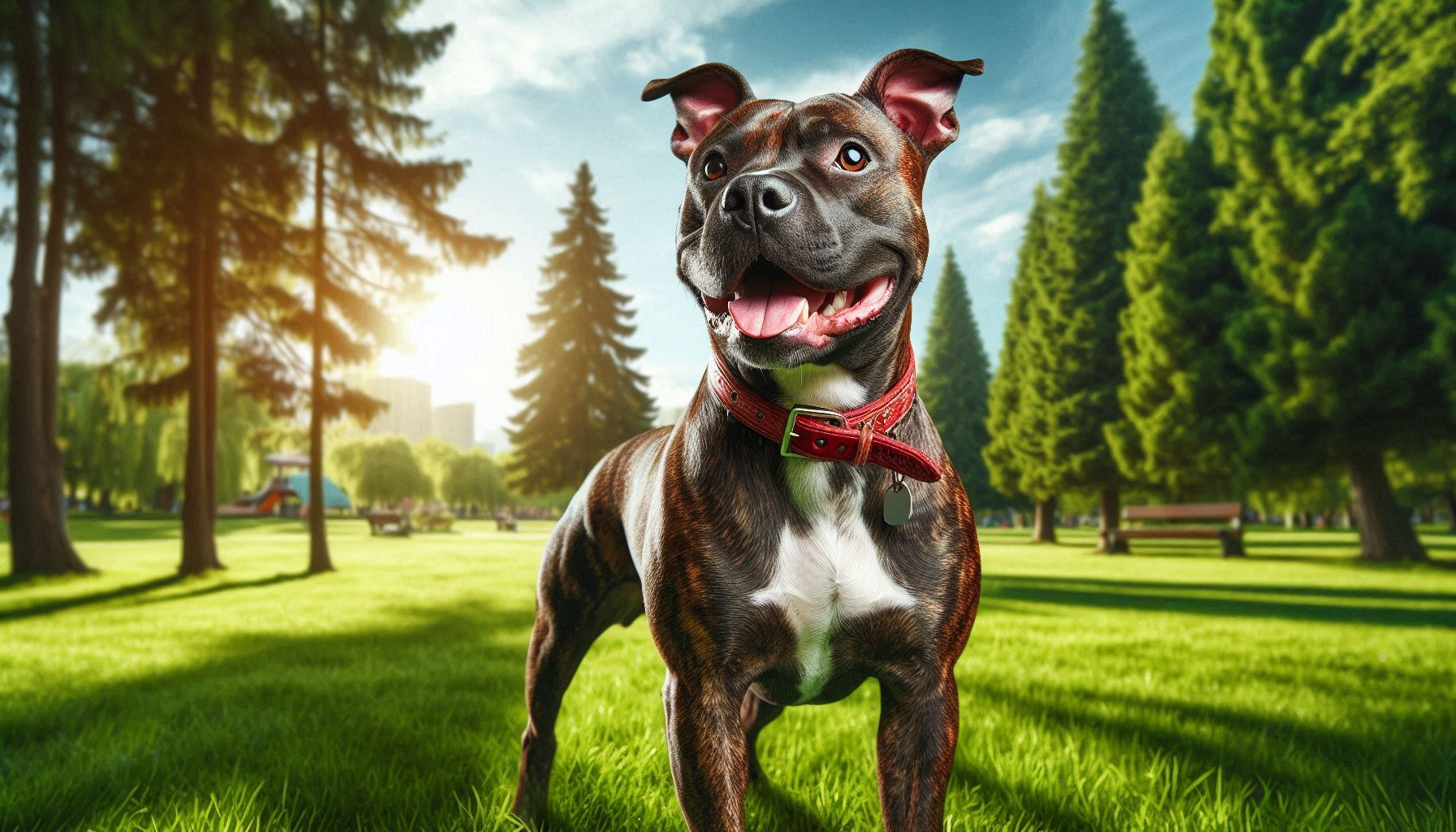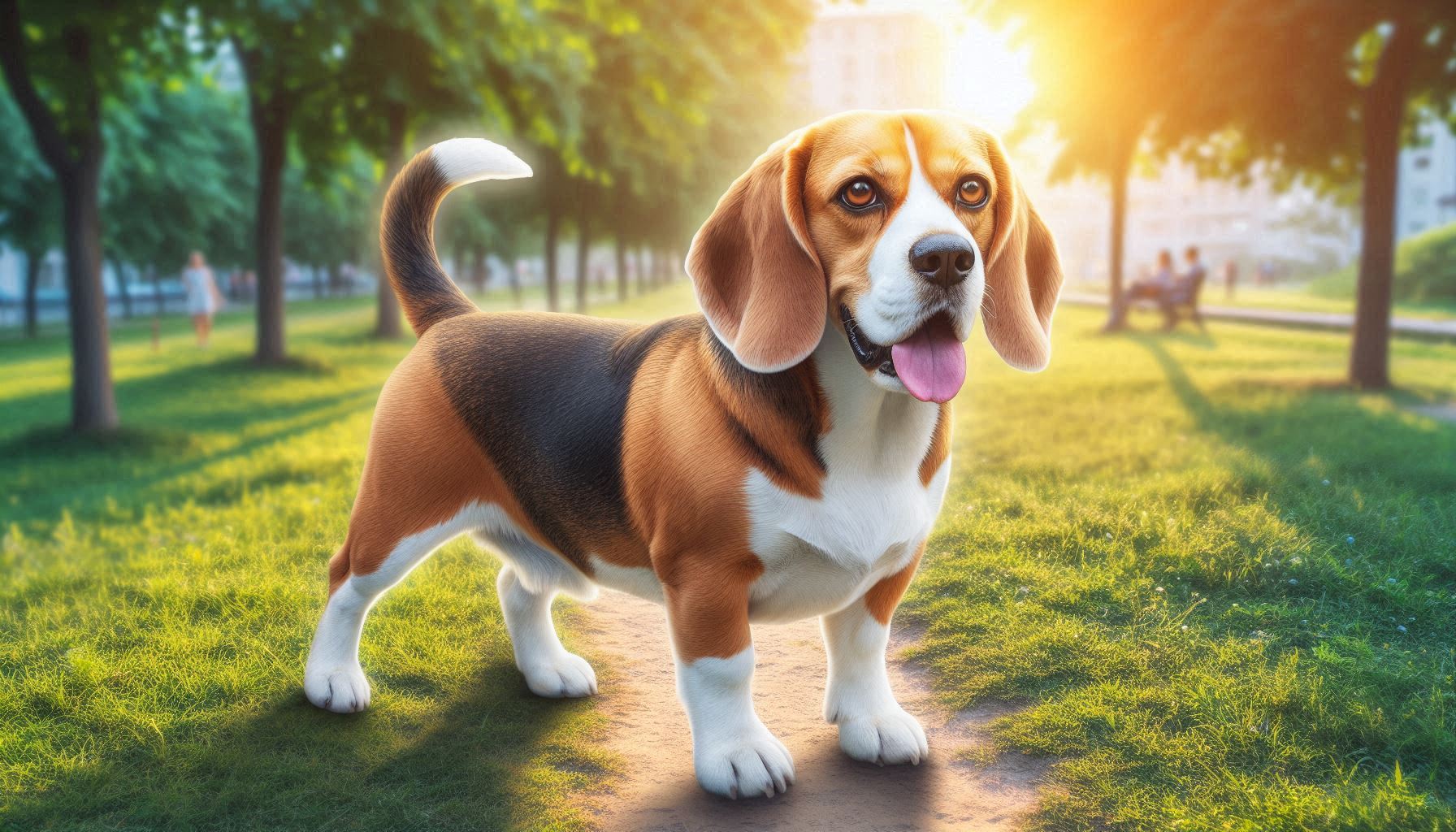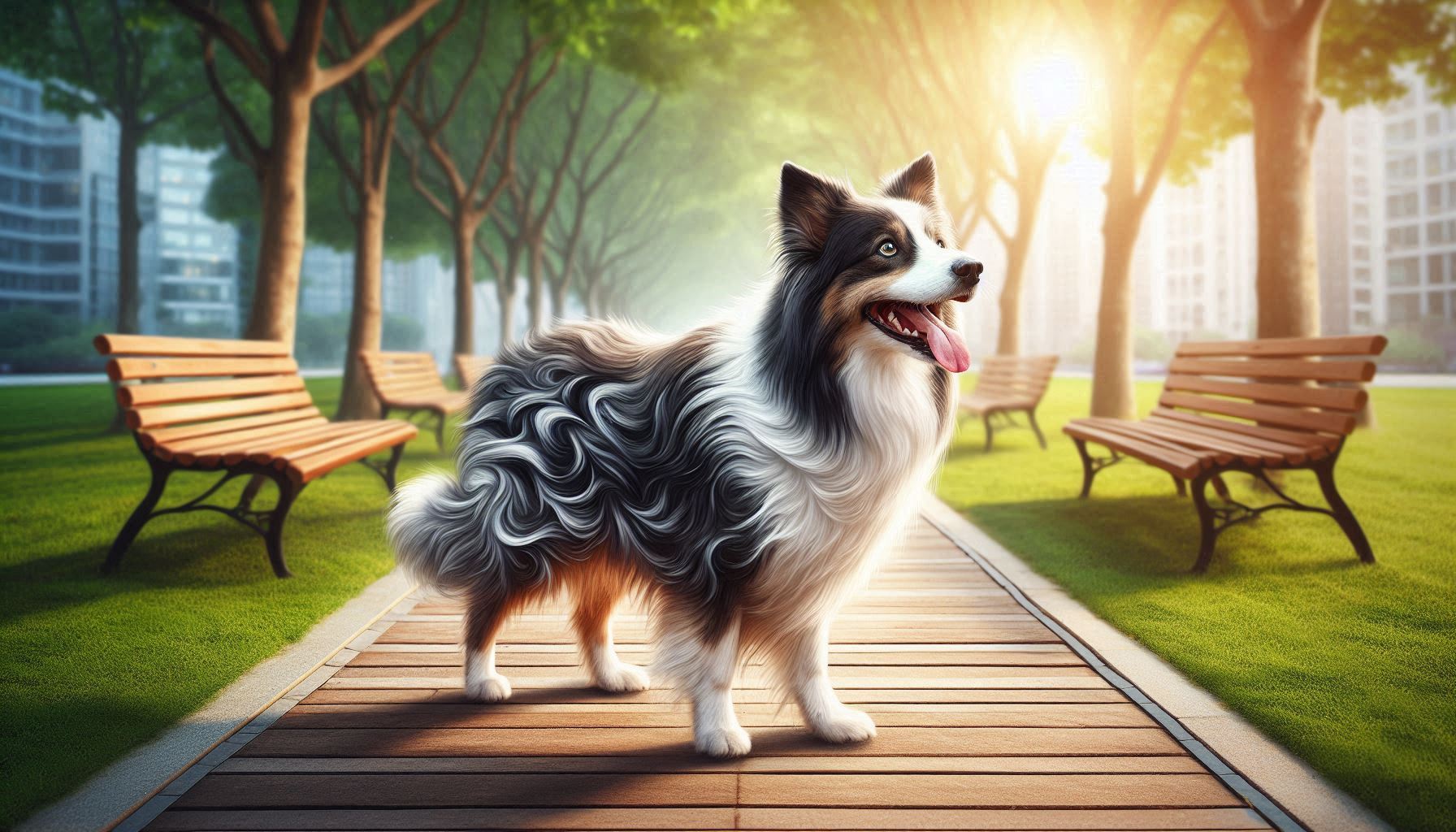Table of Contents
Curly Coated Retriever Dog Breed
The Curly Coated Retriever, known for its distinctive curly coat and versatile skills, is one of the oldest retriever breeds. This breed combines intelligence, athleticism, and a friendly disposition, making it an excellent choice for various roles, from hunting companion to family pet. In this comprehensive guide, we will explore the history, characteristics, care requirements, and more about the Curly Coated Retriever.
History and Origin
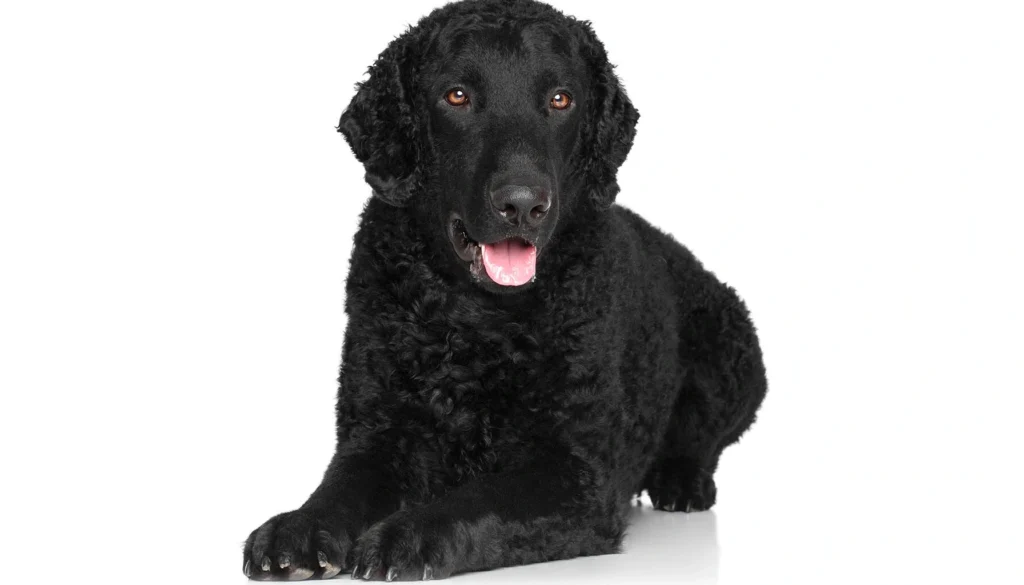
The Curly Coated Retriever’s origins can be traced back to England in the late 18th century. It is believed to be one of the oldest retriever breeds, with a lineage that likely includes the now extinct English Water Spaniel, Poodle, and possibly the Irish Water Spaniel. The breed was developed primarily for retrieving game from water and rough terrain, thanks to its excellent swimming abilities and hardy nature.
The Curly Coated Retriever gained popularity among hunters and sportsmen for its versatility and endurance. It was recognized by the American Kennel Club (AKC) in 1924, and while not as common as other retriever breeds, it has maintained a dedicated following among enthusiasts who appreciate its unique qualities.
Physical Characteristics
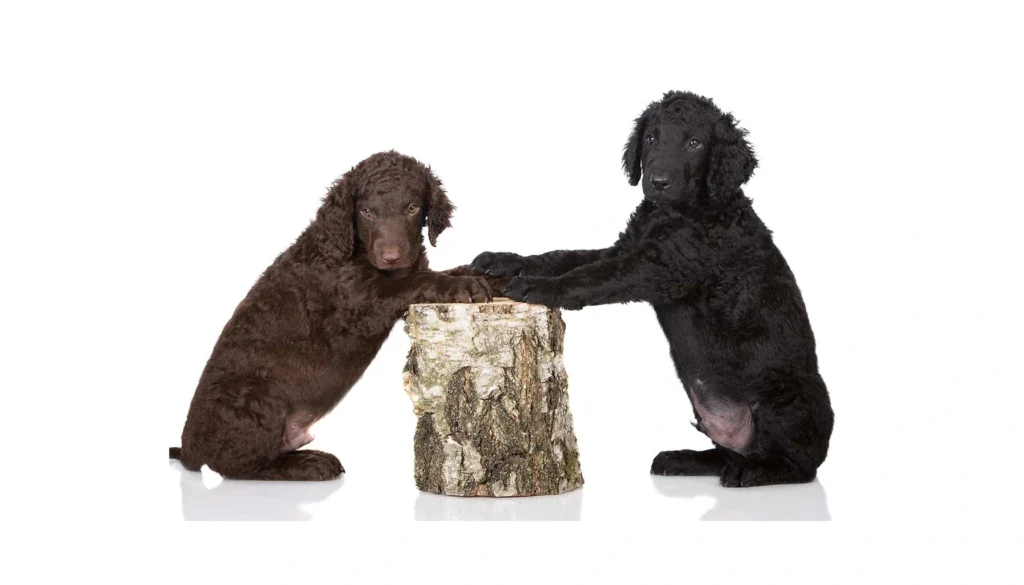
The Curly Coated Retriever is a medium to large sized dog, with males typically standing between 25 to 27 inches tall at the shoulder and females slightly smaller at 23 to 25 inches. Their weight ranges from 60 to 95 pounds, depending on gender and build. The most distinctive feature of this breed is its curly coat, which is dense and water-resistant. This coat serves as excellent protection against harsh weather conditions and cold water.
The breed comes in two primary colors: black and liver. The curls cover the entire body, including the tail, which is moderately long and slightly curved. Their eyes are almond shaped and can range from brown to black, reflecting an intelligent and alert expression. The ears are small, set slightly above the level of the eyes, and covered with tight curls.
Personality and Temperament
Curly Coated Retrievers are known for their friendly and outgoing nature. They are intelligent, confident, and often exhibit an independent streak. This independence means they can sometimes be stubborn, so early and consistent training is essential. Despite their independence, they are also eager to please and form strong bonds with their families.
These dogs are excellent with children and can be quite playful, making them good family pets. They are generally good with other dogs and pets, especially when socialized from a young age. However, their natural curiosity and high energy levels mean they need plenty of mental and physical stimulation to prevent boredom and destructive behaviors.
Care and Maintenance
The Curly Coated Retriever’s unique coat requires regular care to keep it in good condition. While they do not shed excessively, they do experience some seasonal shedding. Regular brushing, about once a week, helps prevent mats and tangles in their curls. It’s important to note that their coat should not be clipped or shaved, as it can damage the texture and protective qualities.
Bathing should be done as needed, typically every few months or when they become dirty. It’s crucial to use a mild dog shampoo to maintain the coat’s natural oils. Additionally, regular ear cleaning, dental care, and nail trimming are essential parts of their grooming routine.
Health and Common Conditions
The Curly Coated Retriever is generally a healthy breed with a lifespan of 10 to 12 years. However, like all breeds, they can be prone to certain health conditions. Some of the common health issues include:
- Hip Dysplasia: A genetic condition that can lead to arthritis and mobility issues.
- Elbow Dysplasia: Another joint issue that can cause lameness and discomfort.
- Eye Conditions: Including cataracts and Progressive Retinal Atrophy (PRA), which can lead to vision loss.
- Bloat (Gastric Torsion): A potentially life threatening condition that requires immediate medical attention.
Regular veterinary check ups and a healthy lifestyle can help manage and prevent these conditions. It’s also advisable to seek breeders who conduct health screenings for these common issues.
Training and Socialization
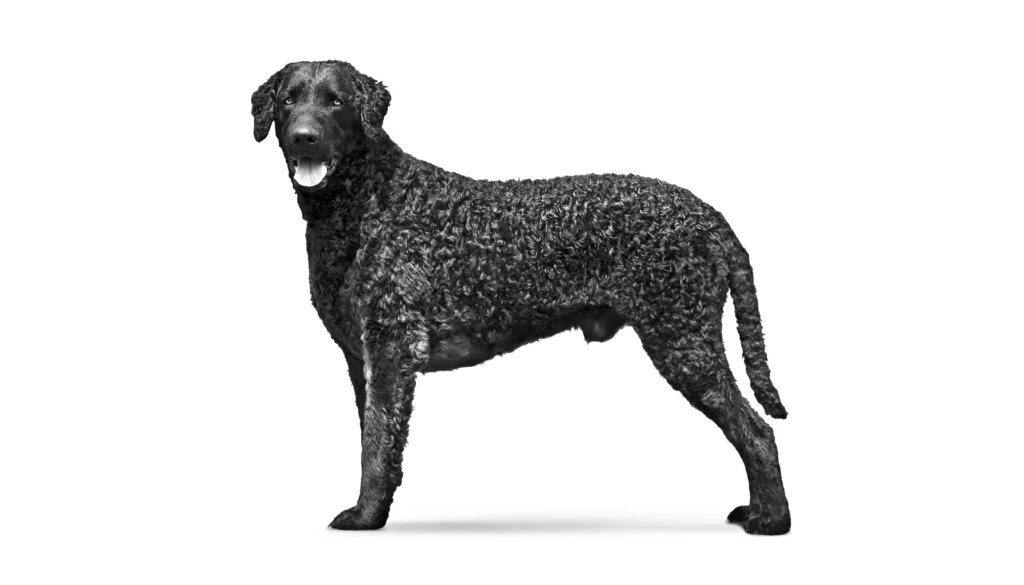
Training a Curly Coated Retriever requires patience, consistency, and positive reinforcement. They are intelligent dogs and respond well to reward based training methods. Early socialization is crucial, exposing them to a variety of people, environments, and other animals. This helps them develop into well-rounded adults and minimizes any potential behavioral issues.
Due to their independent nature, Curly Coated Retrievers may sometimes test boundaries, so it’s important to establish clear rules and be consistent in training. They excel in various canine sports and activities, including obedience, agility, and hunting trials, providing an excellent outlet for their energy and intelligence.
Diet and Nutrition
A balanced diet is essential for maintaining the health and vitality of a Curly Coated Retriever. High-quality commercial dog food or a well-formulated homemade diet can provide the necessary nutrients. It’s important to select food that is appropriate for their age, size, and activity level.
Portion control is crucial to prevent obesity, which can exacerbate joint problems and other health issues. Fresh water should always be available, and treats should be given in moderation to avoid excess calorie intake.
Suitability as a Pet

The Curly Coated Retriever can be a wonderful addition to the right household. They are best suited to active families or individuals who can provide ample exercise and mental stimulation. Their friendly and affectionate nature makes them good companions for children, but their high energy levels mean they are better suited to homes with older kids who can handle their playful nature.
They can adapt well to different living environments, including rural and suburban settings, as long as they have enough space to move and play. Potential owners should be prepared for their grooming needs and be committed to regular exercise and training.
Similar Breeds
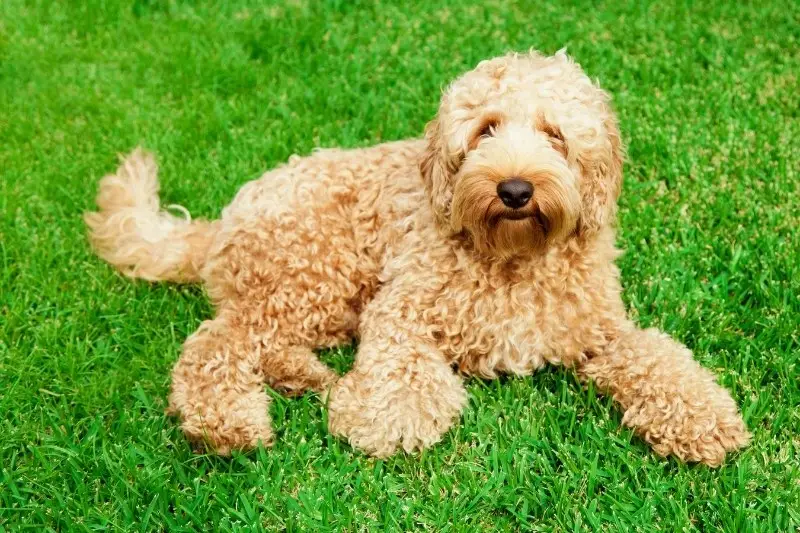
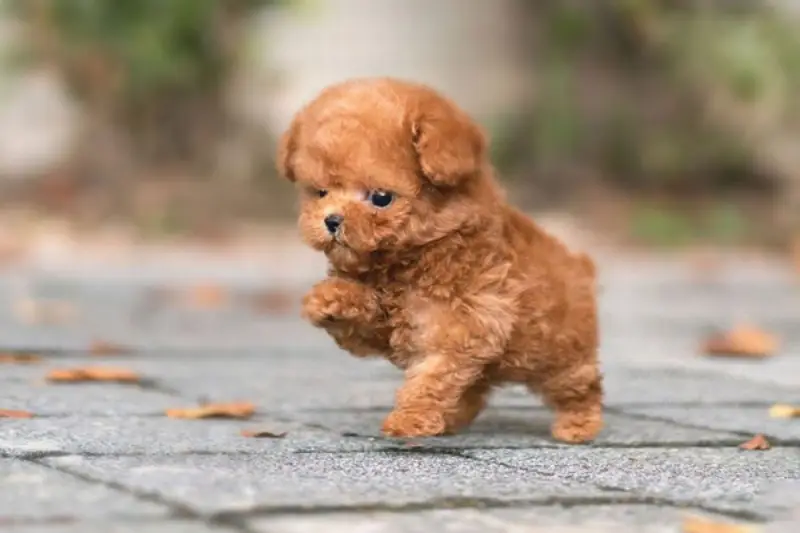
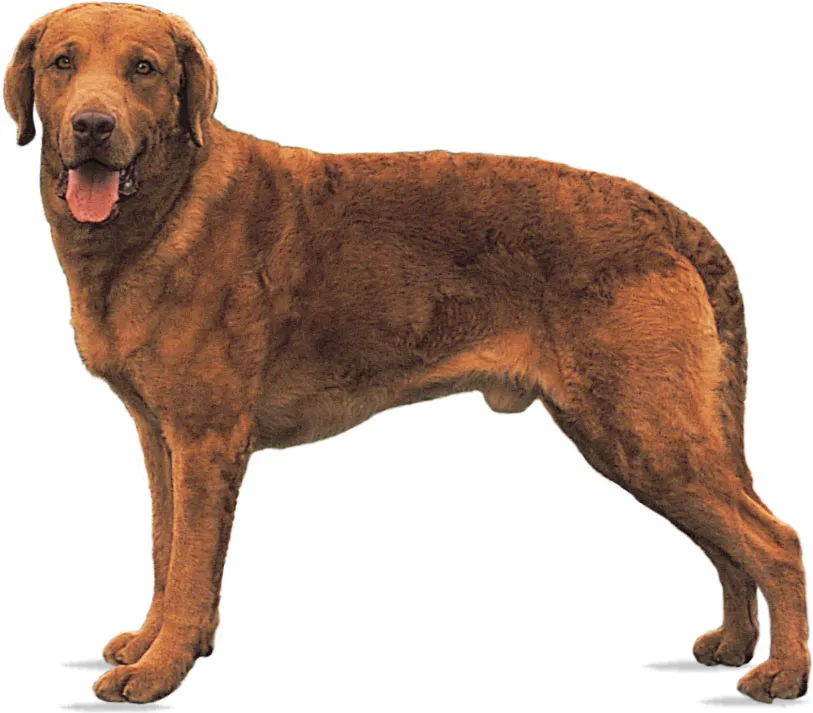
If you’re interested in the Curly Coated Retriever, you might also consider the following breeds:
- Labrador Retriever: Known for their friendly and outgoing nature, Labradors are versatile and excellent family pets.
- Poodle: With their curly coats and intelligence, Poodles are great for those looking for a hypoallergenic option.
- Chesapeake Bay Retriever: Another excellent water dog, known for their endurance and strong work ethic.
Conclusion
The Curly Coated Retriever is a unique and versatile breed with a rich history and a charming personality. Their distinctive curly coat, intelligence, and friendly nature make them excellent companions for active families and individuals. While they require regular grooming and training, the rewards of owning this breed are numerous. With proper care and attention, the Curly Coated Retriever can be a loyal and loving member of the family for many years.
FAQs
Are Curly Coated Retrievers good with other pets?
Yes, Curly Coated Retrievers are generally good with other pets, especially when socialized from a young age. They are friendly and can get along well with other dogs and cats.
How much exercise does a Curly Coated Retriever need?
Curly Coated Retrievers are active dogs and require regular exercise to stay healthy and happy. Daily walks, playtime, and opportunities to swim or run are ideal for meeting their exercise needs.
